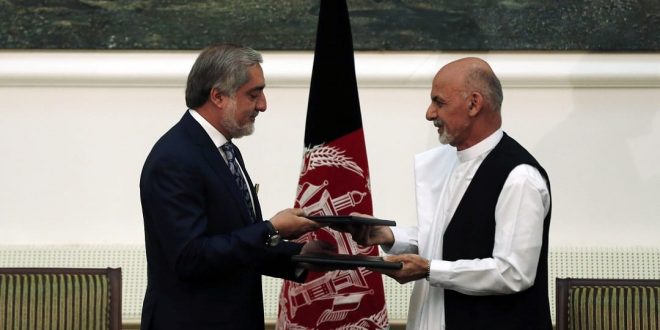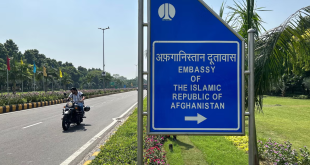AT News
KABUL: There is possibility of change in the preliminary presidential election results once our investigation being completed, said an official of Independent Electoral Complaint Commission (IECC).
Our employs facing problem in the line of their duty in provinces, said Chaman Shah Etemadi, head of the secretariat of the IECC.
“Let`s come and sit together and investigate the complaints, to determine if the complaints are documented or not. If the complaints are documented, 50 complaints will affect the election result, but if the complaints are not documented, 50,000 complaints will not affect the result,” Etemadi was quoted as saying by TOLONews.
Meanwhile, some of the IECC`s provincial heads said they faced problems during their investigation of complaints. Ahmadullah, a member of the Herat IECC, said: “We try our best to assess these complaints.” Ashna Gul Bandawal, the Kandahar IECC`s head, said that his office registered 1,524 complaints claiming electoral crimes and 443 complaints claiming electoral violations.
“We don’t have access to the Independent Election Commission (IEC) database , and we demanded that the IEC and IECC (in Kabul) make this available to us,” Bandawal added.
Siddiqullah Tawhidi, a member of the special electoral reform committee, said, “if the IECC doesn’t have access to Dermalog`s system it means that they will not assess the complaints accurately.”
Based on the initial result of the presidential election, President Ashraf Ghani beat the competition with nearly 12,000 votes, and the chance of winning a second term election is close.
Abdullah Abdullah’s election campaign team, which has had a disagreement with the IEC over 300 thousand votes that they describe as “fraudulent,” said that the announced result is based on ‘fraudulent’ votes.
Recently an election watchdog has expressed grave concern over the hurdles facing the work of the Independent Electoral Complaints Commission (IECC).
Free and Fair Election Forum of Afghanistan (FEFA) welcomed the efforts made by IECC with regard to ‘precise and fair’ adjudication of complaints.
It said addressing the 16,500 complaints necessitated transparent, accurate and comprehensive proceedings on the part of IECC in light of the law.
Given the staggering number of complaints, the FEFA, however, said there was a need for more time to adjudicate them and that this matter was a serious challenge in the work of IECC.
FEFA suggested that the IECC should have paved the ground for addressing the complaints in provincial offices of the electoral body and thus some shortcomings arising from this area would prolong the process.
FEFA also urged all the parties involved in the election process to support the IEC in order to strengthen the credibility and legitimacy of the election. The statement also said these parties should avoid any kind of interference in the electoral commission’s affairs.
 Afghanistan Times
Afghanistan Times




